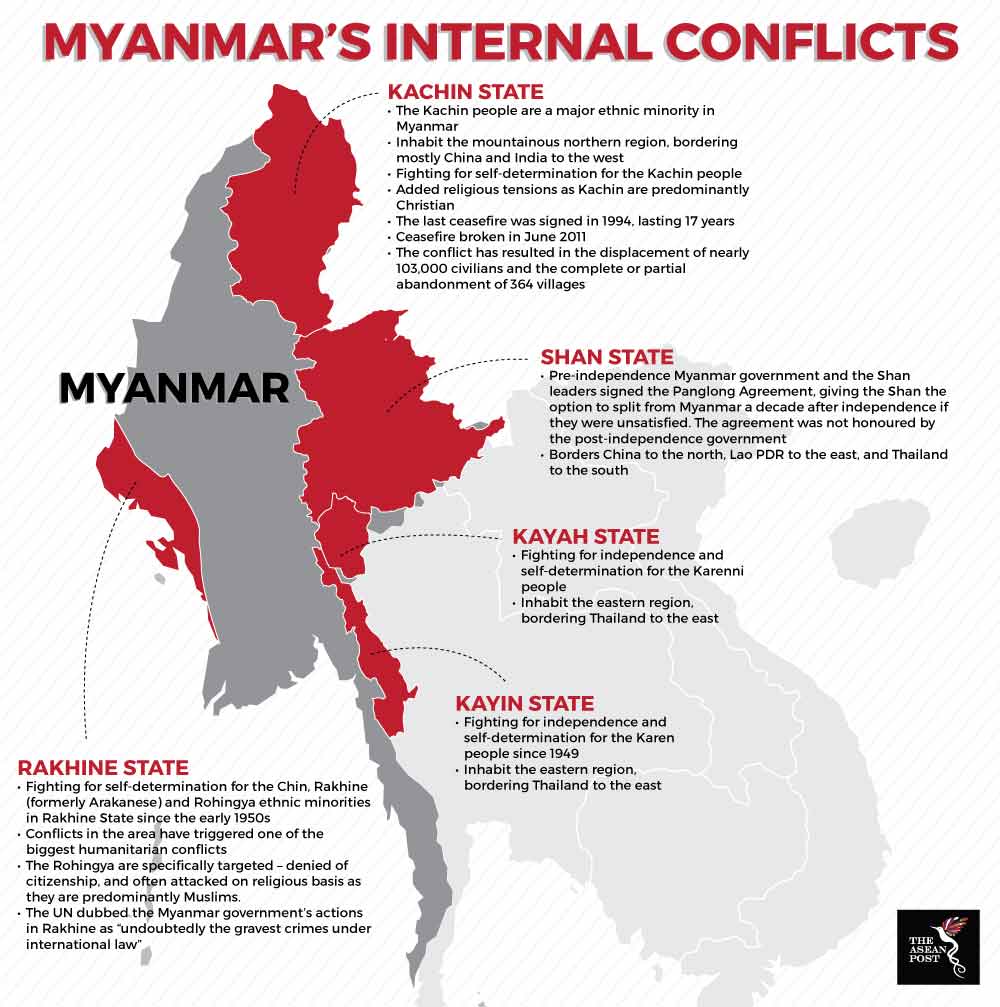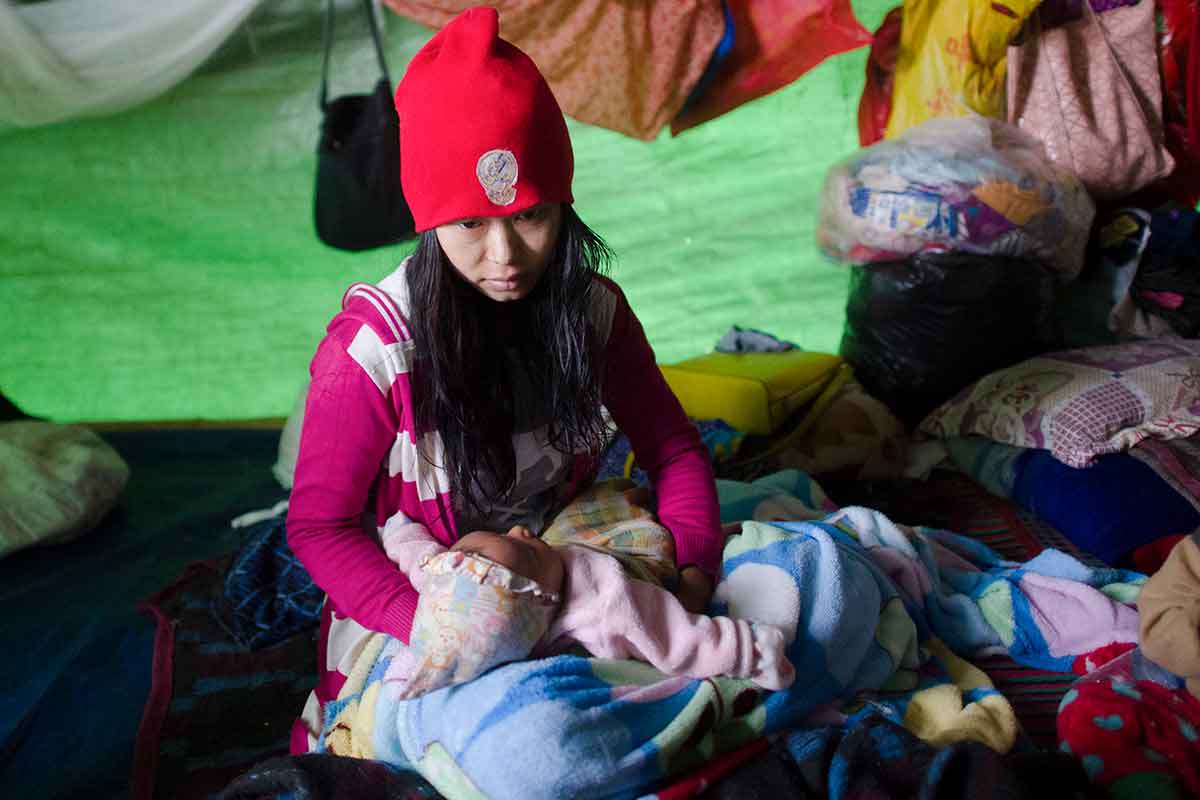The men and women displaced by the ongoing conflict in Kachin and living in camps for internally displace people (IDP) are struggling with a lack of employment and livelihood. With nothing but an assistance of 11,000 Myanmar Kyat (US$7) for each family’s monthly food budget through the World Food Programme (WFP) Cash-for-Food programme, life has been hard. The continuously rising food prices makes the monthly food budget insufficient to feed an average family. Malnutrition is widespread, especially amongst the children and elderly.
It has been more than seven years since Lu San and her family first arrived at the Zee Lum camp in Myitkina, Kachin’s capital city. Like many other IDP parents, she couldn’t afford to pay for her children’s education. At school, IDP children are discriminated as their parents can’t afford to contribute to school events and social activities. Shamed and discouraged, many of these children drop out and enter the job market at a young age.
Their homelife is not much different. According to Lu San, living in a 10-feet wide shelter with no separate bedrooms, women lack privacy. This is especially hard for adolescent girls and puts them at risk of harassment and gender-based violence.
“Since the conflict escalated this year we have received no support as humanitarian assistance is not allowed to access our IDP camp. We have no education for our kids and no job opportunities for men and women. There is no hope for the future of our children and youth. We are all traumatised and worry about our survival,” said Lu San as quoted in a report on a consultation co-organised by the United Nations (UN) Women and the Kachin State Women Network (KSWN). The consultation, part of the UN Women programme for preventing and mitigating the impacts of trafficking through women’s empowerment in Kachin State, was attended by almost 60 local Kachin women leaders.
Humanitarian aid weaponised
Fighting between the Tatmadaw (Myanmar military) and Kachin Independence Army (KIA) escalated in 2011 after a 17-year ceasefire broke. This year, the Tatmadaw have been accused of carrying out air strikes and using heavy weapons in civilian areas, as well as deployment of an infantry notorious for human rights abuses against the Rohingya in Rakhine state. As part of the escalation of violence, the government has also been accused of deliberately blocking the delivery of life-saving aid to civilians displaced by the war. A report by Bangkok-based human rights organisation Fortify Rights has revealed damning evidence of Myanmar systematically denying civilians essential humanitarian aid, such as food, water, healthcare and shelter.
The Fortify Rights report revealed that from June 2017 to June 2018, only five percent out of 562 applications for travel authorisations required by international humanitarian agencies to enter and deliver assistance in government-controlled areas were approved. Requests for access to areas under the KIA were even harder to obtain.
“Depriving civilians of aid in an attempt to overcome an ethnic army is a perverse, unlawful, and ineffective strategy. All parties to this war have a duty to protect civilians and that includes by ensuring access to adequate aid,” said Fortify Rights’ Chief Executive Officer, Matthew Smith.

Source: Various sources.
Women’s voices in the peace process
According to KSWN’s Coordination Team Member, Aung Ja, Kachin women have strong and growing interest in efforts related to conflict prevention and peacebuilding. This is despite patriarchal socio-cultural norms, as well as policy and legislation that continue to marginalise women from participating in the peace process.
“We need more channels and platforms for the voices of women and women civil society organisations’ voices to be heard and shape decision-making for humanitarian action and peace. Together, we women need to coordinate, mobilise and make demands to hold senior officials accountable. We need male leaders to recognise women’s agency and capacity to take on leadership and decision-making roles and not only stay at home,” said Aung Ja.
In a conflict situation, persistent gender inequalities, discrimination and violence are almost always reinforced, perpetuated and exacerbated. Despite this, throughout history, women have often played critical roles in bringing peace back to war torn areas. Aung Ja was right when she said that women are more than just victims of the conflict, they are also the peace-makers and agents for change. The Kachin women are ready and eager to participate. We need to listen.
Related articles:
UN: ‘Ongoing genocide' against Rohingya
